With the multiples expanding their offer to appeal to those leading a vegetarian or vegan lifestyle, the question is should convenience stores follow suit? C-Store explores how retailers can make the most of the meat-free category as it continues to grow in popularity.
Vegetarian, vegan, flexitarian, pescatarian - the list goes on. The take-up of diets that shun meat in favour of fruit, vegetables and alternative sources of protein seems to have hit the big time over the past few years.
Meat-free diets have become much more common, with approximately 12% of the UK population eschewing meat (Vegetarian Society, 2017). Meat-free foods are also becoming more relevant, with 47% of UK shoppers looking to reduce their meat consumption (YouGov, 2017).
Supermarkets have tried to make the most of this trend, with Waitrose expanding its vegetarian and vegan range by more than 50 lines and Sainsbury’s by 10%, while big brands such as Dr Oetker are also capitalising by releasing new skus that make vegetables their star flavours and ingredients.
However, there has been less of a fanfare in the convenience channel. The demand for meat-free food to go and ready meals, particularly among younger consumers, is far from small, illustrated by the likes of Prêt à Manger and Planet Organic both opening veggie and vegan versions of their chains.
Shailesh Parekh, owner of six Nisa forecourt stores in the West Midlands, certainly thinks the area offers opportunity for c-stores. As a vegetarian himself, Shailesh recognises that small stores need to offer more meat-free alternatives, and stores should shout more about the meat-free ranges they do stock.
He says: “When I think about the fresh homemade sandwiches that I make in my stores, quite a large number of flavours are vegetarian or vegan.
“Things have definitely improved a lot since the 90s. When you go out to a restaurant now there are usually four or five good vegetarian and vegan meals, which is being reflected in the retail sector, too, but I think we still have a bit of catching up to do.”
As a result Shailesh has decided to label his vegetarian and vegan lines with on-pack stickers (V for vegetarian and a leaf for vegan). He is also planning to add green shelf strips to his food-to-go area to clearly designate which sandwiches are meat-free or vegan. He hopes this will give the lines greater standout and wants to see if sales increase as a result of the changes.
“I think customers, like retailers, don’t realise that certain food is vegetarian or vegan,” Shailesh asserts. “For me, it’s not right that someone could come into my store and be unable to find the kind of products they want. In general, a greater number of people are moving away from foods that contain meat so things could be very different in five years’ time.”
New research from food alliance Eating Better shows that the big supermarkets also have work to do when it comes to catering for the growing number of shoppers who are cutting back on meat.
In a survey of 1,350 ready meals from 10 UK supermarkets including the Co-op, the alliance found that meat was the main ingredient in three out of four (77%) of the own-brand and branded meals surveyed (July 2018). Overall, only 3% of ready meals were plant-based choices (without meat, fish, dairy or egg) with vegetarian and vegan ranges being sold at a premium price.
Simon Billing, executive director of Eating Better, explains: “While there has been an explosion of interest in plant-based eating and higher-welfare meat, supermarkets are falling short on ready meals,” he says.
“Eating Better wants to see all retailers increase their plant-based and healthier vegetarian ready meal offer, and to use meat and dairy that meets higher animal welfare and environmental standards across the rest of their range.”
Mo Razzaq, owner of a Family Shopper in Blantyre, Glasgow, is trying to capitalise on this trend by stocking more premium meat-free options within ready meals.
“We’ve tried to focus more on our vegetarian range with ready meals from Quorn and Linda McCartney,” he says.
“We’ve definitely noticed that a higher proportion of people are now following a vegetarian and vegan diet.”
Paul Gardner, owner of Budgens of Islington, North London, says he has seen a lot of his shoppers changing their eating habits, and believes this number will only increase.
“I think vegetarianism and veganism will continue to grow,” he says. “I’m going to make sure I’m better prepared for Veganuary next January as that is clearly growing in popularity.”
Campaigns such as Veganuary, which encourages shoppers to follow a vegan diet throughout January in an attempt to be healthier in the new year, have really taken off. Research conducted by Kantar found that during the first month of this year, 29% of evening meals contained no meat or fish (Kantar Wordpanel, 12 weeks ending 28 January 2018).
Sales of chilled foods were also affected, with one in 10 shoppers buying a meat-free ready meal in January, causing sales to rocket by 15% compared with the same period in 2017.
This post-Christmas interest in vegan and vegetarian eating seems to have set a precedent for the rest of 2018, says Vanessa Brown, head of business and catering services at the Vegetarian Society.
“Meat-alternatives are here to stay,” she adds. “Companies are now investing in developing innovative products made from plant-based foods such as tempeh, beetroot, soya or creating gluten-free options.
“Even people who aren’t veggie or vegan are choosing to use them and some stores are responding to this increased demand among their customers by trialling more mainstream positioning, such as placing them alongside non-vegetarian items.”
The move towards meat-free lifestyles has certainly been good news for brands such as Quorn, as Gary Routledge, national account manager at Quorn Foods, points out. He says: “We’re benefiting from the move towards vegetarianism and flexitarianism. This is a generational shift, not a fad, so we expect the trend to continue for decades to come.
“Choosing to eat Quorn is about more than choosing great-tasting food; it’s about caring for you and your family’s health - and also for the future wellbeing of the planet.”
Pole position
Julian Taylor-Green, owner of Spar Lindford in Hampshire, has noticed the potential of the meat-free category in his store. “I think there is a whole movement around vegan, vegetarian and free-from which is dictating how we display the range in-store,” he asserts.
“We are trying to move away from giving products such as Quorn and Alpro their own space in-store. Instead, we are incorporating the products into the rest of the chilled range.”
This is a big job for Julian and his staff, but he is confident that demand for these types of products will continue to grow.
“In the future, special diet products are going to have an even bigger presence. The challenge is to get consumers to buy them on impulse like they do other products in the chiller.”
Younger people could be key to solving this problem. Research by KAM Media conducted last month shows that 59% of Generation Z shoppers (those aged 18-24) are non-meat eaters. Added to this, research conducted by shopping app Ubamarket found that 25% of millennials try meat-free and plant-based meals, despite not identifying as vegetarian or vegan (July 2018).
Ubamarket ceo Will Broome believes the statistics show retailers should be adapting their ranges. “These findings are testament to the diversification of Britain’s palate and a real need for a change within the food industry,” he says.
“The generation that is foregoing food items such as jellied eels and tripe is the same group that feels left behind by an outdated supermarket format, unable to find the ingredients they need to cook the meals that appeal to them.”
Sara Trechman, co-founder of healthy snack brand Well & Truly, thinks independent retailers are ideally placed to fill this void. She says: “Younger shoppers are much more likely to shop in convenience stores so there is a huge need, currently unfulfilled, for increased ‘flexitarian friendly’ ranges.
“Convenience stores have a really exciting opportunity to differ from the multiple grocers by creating a ‘lifestyle/healthier’ section that appeals to all diets.”
However, Shailesh points out that younger people aren’t the only group attracted to these kinds of products. “I find that older people are also turning vegetarian or vegan,” he says. “I think it helps that a lot of celebrities and leaders of the big companies are coming out and saying how damaging meat has been to their health. This helps to bring vegetarian and vegan products into the mainstream - people no longer look at you a bit weird when you say you don’t eat meat!”
Julie Stevens, category controller for Alpro UK and Ireland, thinks c-stores are already benefiting from consumer demand for plant-based foods, but believes retailers still have “some way to go if they are to realise the category’s true pulling power”.
She says: “We know how precious space is to the convenience sector - whether in ambient, chilled or frozen - so stocking brands that will drive higher basket spend is a massive opportunity to maximise sales.”
Mark Cleary, owner of Spar Walkden, Worsley, Manchester, has seen a changing attitude to food and its origins, and how it affects their health. “In the past five years or so, people have been buying a lot more vegetarian and vegan food,” he says. “We’ve seen fresh salads and vegetarian ready meals sell very well. I think it has to do with people being more knowledgeable about their health and, after seeing how animals are treated abroad on their holidays, people are more concerned with animal welfare, too.”
Mark thinks the convenience channel needs to be more open to offering shoppers meat-free products, a message he says was highlighted at the National Convenience Show in Birmingham earlier this year. He says: “After speaking to fellow retailers and brands at the show, it’s clear that there is demand from shoppers for more of these types of foods and c-stores need to offer something equal to the supermarkets and the farm shops.”
Mark recognises that some retailers might be concerned about giving up space for meat to more unfamiliar vegetarian and vegan products, but he thinks research can help.
He adds: “If retailers are concerned about offering meat-free lines then they should get out there and see what other retailers and the multiples are doing. You have to listen to consumers, too.
“I mean, I really like a bacon butty, but even I’m looking to have more vegetarian and vegan food as an alternative. More people in general are looking for healthier things to eat.”
It’s true that the thought of stocking more unusual veggie and vegan lines alongside traditional meat products may unnerve some retailers, but it’s clear that c-stores shouldn’t be sheepish about the changes.
Retailers must recognise that more consumers, even those who don’t exclusively follow a vegan or vegetarian diet, are looking to experiment with more meat-free or plant-based foods. After all, it could prove to be the next cash cow for c-stores.
Food For Thought
>50%
of UK adults currently opt for vegan and free-from food choices
(Vegan Society, 2018)
+22%
growth in sales of plant-based foods from c-stores
(Nielsen Scantrack MAT 52 w/e 30 December 2017)
47%
of UK shoppers are looking to reduce their meat consumption
(YouGov, 2017)
1/3
households buy into the plant-based foods category
(Nielsen MAT w/e 16 June 2018)
Urban eat grows choice of vegan and veggie
Sandwich brand Urban Eat has extended its vegan and vegetarian Roots collection of sandwiches, wraps and paninis, to cater for the growing demand for free-from diets.
The five additions (rrp £2.79) include: Pickle Me Up Sandwich; Avo-Lafel Sandwich; Pesto Presto Wrap; Dirty Jack Wrap; and Hot Mozza Bella Panini.
Over the past 12 months, Urban Eat owner Adelie Foods has more than doubled the size of its vegan range following success with consumers and requests from retailers.
Adelie senior marketing manager Isla Owen says: “Innovation and keeping on top of trends is at the heart of our ethos at Adelie, and catering for specialised diets such as vegan is a big focus for us at Urban Eat.
“Meat-free diets are becoming more common, with about 12% of the UK population now following this type of diet (Vegetarian Society 2017).
“We’re pleased to extend our Roots range with fresh, exciting sandwiches, wraps and paninis that give a real taste explosion. The new products will help retailers and foodservice suppliers cater for the growing market of consumers looking for more free-from options during lunchtime.”
How to make the most of the vegan trend
Dominika Piasecka, media and PR officer for the Vegan Society, believes retailers can tap into demand for vegan food by rethinking how they merchandise the category.
“I would definitely suggest placing vegan alternatives alongside their animal equivalents,” she says. “For example, put vegan meat in the meat aisle, vegan cheese in the cheese aisle, plant milk in the milk aisle and so on. This has proven to increase sales, because it ensures non-vegans purchase these products.
“Wherever stores place vegan products, vegans will find them - but non-vegans won’t go out of their way to find these products, so placing them in the aisles where you’d expect to see them is the best solution. So special vegan aisles are, surprisingly to some, not the best idea.”
Piasecka believes it is important for retailers to always keep in mind that vegan products are not exclusively for vegans - they have a wider audience.
“In fact, they’re suitable for most diets and religions, and often constitute a safe food option for all,” she asserts.
“Offering vegan options makes clear commercial sense - it opens up the potential market to not only half a million vegans in Britain, but also to a million more vegetarians, the huge number of meat and dairy reducers, the lactose intolerant, the health-conscious, and others who simply enjoy vegan food from time to time.”















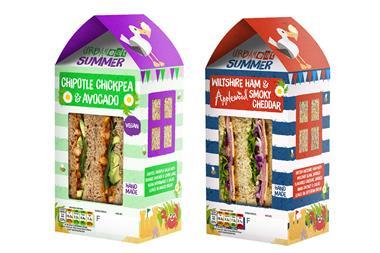
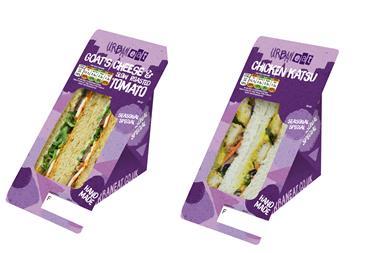

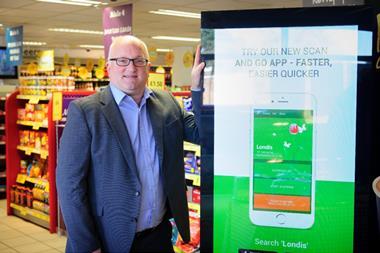
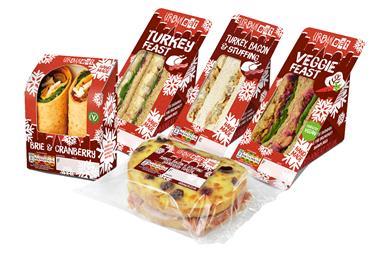
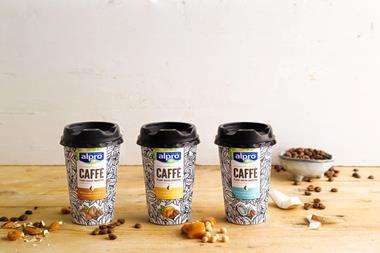
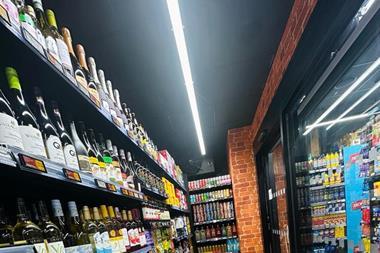
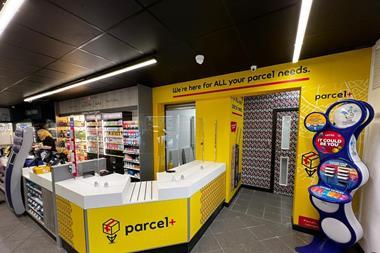

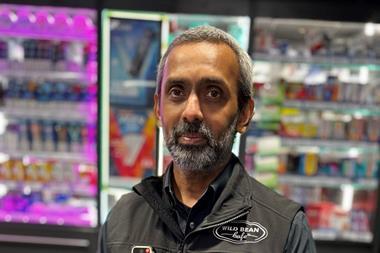


No comments yet